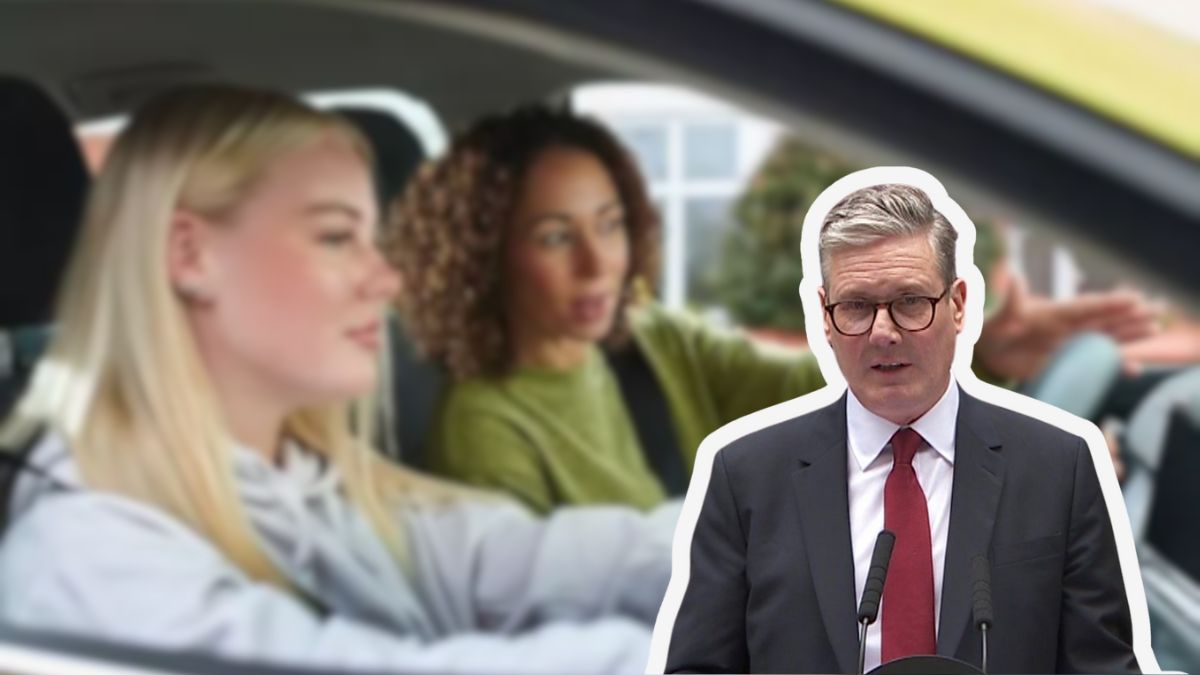If you or someone in your family is approaching the age of 70, it’s time to pay attention. Starting from 1 September 2025, the UK will roll out new driving licence rules that specifically affect senior drivers. The reforms will require older motorists to renew their licences more frequently and provide medical self-declarations to confirm fitness to drive.
While these changes are designed to enhance road safety, they also raise important questions about senior independence, the renewal process, and the potential impact on everyday life. Understanding the details now will be vital to avoid fines, licence suspensions, or invalidated insurance once the new rules come into effect.
What Is Changing in September 2025?
From September 2025, the rules for drivers aged 70 and above will undergo significant reform:
| Rule Element | Details from 1 September 2025 |
|---|---|
| Age Group Affected | Drivers aged 70+ |
| Renewal Period | Every 3 years (previously every 5 years) |
| Medical Declaration | Required with every renewal |
| Eyesight Test | Required if requested or if issues are reported |
| Method of Renewal | Online via DVLA portal or postal application |
| Updated Contact Info | Mandatory – drivers must keep DVLA details current |
| Legal Penalties | Fines up to £1,000, invalid insurance, or licence suspension |
| Start Date | 1 September 2025 |
This table highlights how the UK is moving toward a more structured, safety-focused renewal system for older drivers.
Why the Rules Are Changing
The decision to update the rules comes after years of debate about the risks of age-related driving challenges. Studies show that as people age, changes in eyesight, reflexes, and medical conditions such as diabetes or memory loss can affect driving safety.
The previous five-year renewal cycle was criticised for being too long, leaving extended gaps without health checks. Road safety campaigners, healthcare professionals, and even families of older drivers voiced concerns about the absence of consistent oversight.
By shortening the renewal period to three years and requiring a medical self-declaration each time, the government aims to ensure that those behind the wheel remain medically fit and safe.
Medical Self-Declarations – What They Mean
A major feature of the reforms is the mandatory medical self-declaration. Drivers aged 70+ must:
- Confirm their general health status.
- Disclose any medical conditions that may affect driving ability.
- Update DVLA if health changes between renewal cycles.
Conditions That Must Be Declared
Examples include:
- Diabetes (managed by insulin or medication).
- Glaucoma or significant vision problems.
- Epilepsy or seizure history.
- Cognitive decline, memory loss, or dementia-related symptoms.
- Recent surgeries affecting mobility or reaction times.
If a driver fails to report a notifiable condition, they could face legal penalties, including fines up to £1,000 and insurance invalidation.
Stricter Eyesight and Medical Checks
While not every senior will automatically undergo eyesight testing, the DVLA will request tests in cases where:
- A driver reports vision difficulties.
- Medical declarations indicate potential issues.
- Concerns are raised by healthcare providers.
This ensures flexibility—healthy senior drivers will not face unnecessary hurdles, while those at risk will undergo further checks.
Who Will Be Affected?
Three groups of drivers will be directly impacted:
- Newly turning 70 – Anyone reaching age 70 on or after 1 September 2025 must follow the new rules.
- Existing drivers over 70 – Those already above 70 will need to comply when their current licence expires.
- Drivers of any age with medical conditions – If you have a health issue that could impair driving, the DVLA may still require medical updates, regardless of age.
For motorists under 70 with no medical concerns, the standard renewal cycle remains unchanged.
Renewal Process Explained
The DVLA has streamlined the process for seniors to make compliance easier.
Renewal Options
- Online via DVLA portal – Fastest option, requiring your current licence, National Insurance number, and passport if available.
- Postal application – Using a paper renewal form for those less comfortable with digital systems.
What You’ll Need
- A completed medical self-declaration.
- Supporting documents if requested (eye test results, GP letters).
- Current and accurate contact information.
Drivers are advised to begin the process at least one month before expiry to avoid disruptions.
Penalties for Non-Compliance
The consequences of ignoring the new rules are serious:
- Fines up to £1,000 for driving without a valid licence.
- Insurance invalidation, leaving drivers financially liable in case of accidents.
- Potential licence suspension or revocation if health risks are concealed.
Authorities stress that the goal is not punishment but ensuring public safety and protecting drivers themselves.
What This Means for Senior Drivers
For the majority of healthy older drivers, these reforms will not create significant obstacles. Many seniors already undergo regular GP visits and vision checks. The new system simply formalises these checks into the renewal process.
However, drivers with ongoing conditions—such as diabetes, recent strokes, or early dementia—must be more vigilant. Consulting with healthcare providers before renewal will help ensure declarations are accurate and compliant.
Benefits of the Updated Rules
The reforms are not only about restrictions; they also bring benefits:
- Increased safety – Regular monitoring reduces risks for all road users.
- Early health detection – Medical conditions can be identified sooner.
- Peace of mind – Drivers and their families know licences are backed by medical oversight.
- Clear legal protection – Prevents insurance disputes in case of accidents.
- Fairer oversight – Ensures consistent standards across all older drivers.
Tips for a Smooth Renewal
To minimise stress when the new rules arrive:
- Update your details – Ensure DVLA has your correct address and contact info.
- Book regular check-ups – Visit your GP and optician annually.
- Start renewal early – Apply a month before expiry to avoid gaps.
- Keep medical documents handy – Store letters, test results, and prescriptions.
- Respond quickly to DVLA requests – Delays can lead to suspensions.
Preparation is the key to maintaining driving independence without interruptions.
FAQs
Q1: What changes will affect over-70 drivers in 2025?
Drivers aged 70+ must renew licences every 3 years (instead of 5) and complete a medical self-declaration.
Q2: Will all over-70 drivers need an eyesight test?
Not automatically. The DVLA may request tests if a medical issue is reported or suspected.
Q3: What happens if I fail to report a medical condition?
You could face fines up to £1,000, invalidated insurance, and possible licence suspension.
Q4: How do I renew my licence under the new rules?
You can renew online via DVLA or apply by post with supporting documents if needed.
Q5: When do the changes come into force?
The new rules begin on 1 September 2025 for all drivers aged 70 and over.









